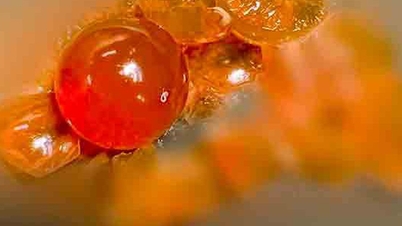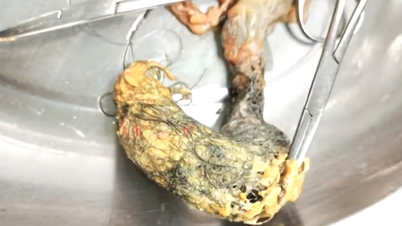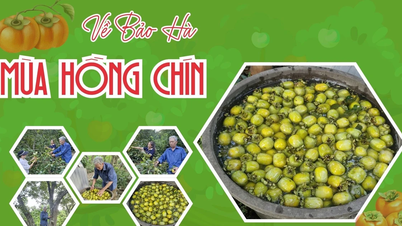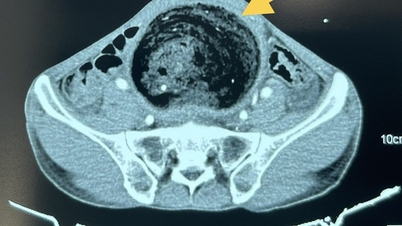Three days ago, a 59-year-old man from Ninh Binh ate three pickled persimmons, after which he experienced dull, intermittent abdominal pain and constipation, requiring him to go to the hospital for examination.
After examination and paraclinical tests, the doctor diagnosed the patient with intestinal obstruction due to food impaction, with a large mass of food in the stomach. The patient was scheduled for laparotomy to break up the food impaction in the small intestine and push it down to the colon, and also to perform a gastrostomy to remove the food impaction.
The surgery was successful, and after 6 days the patient recovered steadily, the surgical wound healed well, there was little pain, and the patient was able to eat, drink, and walk gently.
According to doctors at Ninh Binh Provincial General Hospital, intestinal obstruction due to food impaction is a common surgical emergency. Most cases require surgery to dissolve or remove the impacted mass.
This phenomenon occurs when a mass of undigested food forms in the stomach and moves down to the small intestine, causing an obstruction. It is often caused by eating foods high in tannins, such as persimmons, guavas, figs, and fruit seeds, or foods that are difficult to digest, such as bamboo shoots, jackfruit, and chewing gum. When tannins and fiber come into contact with stomach acid, they precipitate into a solid mass. Those most susceptible to intestinal obstruction due to undigested food are people who have undergone gastric bypass surgery, the elderly with missing teeth, and children.
According to physician Bui Dac Sang of the Hanoi Traditional Medicine Association, persimmons are very beneficial for people with cardiovascular disease, but they should not be eaten on an empty stomach, as persimmons contain quite a lot of tannins and pectin.
When eaten on an empty stomach, these substances clump together under the action of stomach acid. If they cannot pass through the pyloric sphincter into the small intestine, they will remain in the stomach and form stones. If the stones are not eliminated naturally, they can cause gastrointestinal obstruction, leading to symptoms such as upper abdominal cramps, vomiting, and even vomiting blood.
People with diarrhea, weakened immune systems, postpartum women, and those with colds should avoid eating persimmons. People with poor stomach function, chronic gastritis, indigestion, and those who have undergone gastrectomy should also avoid this fruit.
Nhu Loan
Source: https://vtcnews.vn/nhap-vien-phau-thuat-sau-an-3-trai-hong-ngam-ar908258.html














































































































Comment (0)